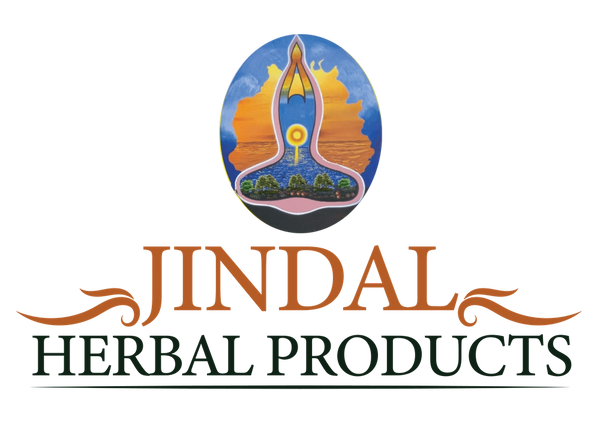
Herbal Liver Detox: What Works & What Doesn’t?
Share
Your liver is one of the most hardworking organs in your body. It filters toxins, metabolizes fats, stores essential vitamins, and helps maintain a clean bloodstream. With so many “detox” trends circulating online, it’s no wonder people seek herbal liver detox solutions.
But does a liver detox really work? Which herbs provide genuine benefits, and which claims are just marketing hype? This guide will break it down, combining Ayurvedic wisdom, herbal traditions, and modern research to help you support your liver safely and effectively.
Do You Need a Liver Detox?
Whether it is teas, supplement bottles, or wellness posts, the term “detox” is everywhere. However, your liver is naturally equipped to detox your body every day. A healthy liver doesn’t need a trendy cleanse.
Your liver may need support only when overloaded due to:
- Excess alcohol consumption
- Highly processed or junk foods
- Environmental pollutants
- Chronic stress and lack of sleep
Instead of extreme cleanses, the most effective approach is to support your liver’s natural function through balanced nutrition, hydration, regular exercise, restful sleep, and gentle herbal support.
The Ayurvedic Perspective on Liver Care
In Ayurveda, the liver is closely associated with Pitta dosha, which governs heat, metabolism, and transformation in the body. When Pitta is aggravated, it can cause:
- Skin problems
- Irritability
- Acid reflux
- Sluggish digestion
Ayurvedic wisdom emphasizes cooling, bitter, and slightly sweet herbs and foods to balance Pitta and promote liver health. Daily habits that maintain strong digestion and regular elimination naturally reduce the liver’s burden, without resorting to drastic cleanses.
What Herbs May Truly Help Your Liver?
Milk Thistle (Silybum marianum)
Milk thistle is one of the most researched liver-supporting herbs. Its active compound, silymarin, is a potent antioxidant. Studies suggest milk thistle may protect liver cells from damage caused by alcohol, medications, or environmental toxins. It is commonly used in Europe for liver recovery and mild liver strain.
How to use:
Typically taken as a standardized supplement. Always consult a healthcare provider before starting.
Turmeric (Curcuma longa)
Turmeric is celebrated in both Ayurveda and modern medicine. Its active ingredient, curcumin, has antioxidant and anti-inflammatory properties. Research indicates turmeric may help reduce liver inflammation and support natural detoxification.
How to use:
Include turmeric in cooking with a bit of black pepper to improve absorption. Turmeric milk (golden milk) is also soothing.
Guduchi (Tinospora cordifolia)
Known as “amrita” or nectar of immortality, guduchi is revered in Ayurveda for immune and liver support. It aids the liver in processing toxins while promoting overall vitality.
How to use:
Available as powder or tablets. Should be used under the guidance of an Ayurvedic practitioner, especially if you have any existing liver concerns.
Dandelion Root (Taraxacum officinale)
Traditionally used in European and American herbalism, dandelion root may support bile flow, which helps the liver process fats and remove waste.
How to use:
Steep dried dandelion root as tea. This can be mildly bitter, which Ayurveda sees as helpful for liver and digestion.
What Doesn’t Work (Or Can Even Be Harmful)
Extreme Juice Fasts
Short periods of lighter eating (like a mono diet) can be gentle on digestion, but long juice-only cleanses may stress the body. They often lack the protein and fats needed for the liver to do its work.
Detox Teas with Harsh Laxatives
Many marketed detox teas include strong laxatives like senna. This only clears out your colon temporarily and doesn’t truly cleanse the liver. Overuse can lead to dehydration and electrolyte problems.
Very High-Dose Supplements
Excessive intake of herbal supplements can strain the liver and may interact with medications. Always follow recommended doses under professional guidance.
Practical Ways to Support Your Liver Naturally
Rather than chasing trendy detoxes, focus on these sustainable habits:
- Stay hydrated: Water helps flush out toxins.
- Eat whole foods: Leafy greens, beets, carrots, garlic, and berries support liver function.
- Sleep well: Nighttime is when the liver performs most detox functions.
- Exercise regularly: Movement promotes blood and lymph circulation.
- Use moderate spices: Turmeric, cumin, and coriander enhance digestion and metabolism.
- Limit alcohol and processed sugar: Reduces liver burden and oxidative stress.
A Gentle Ayurvedic Liver Drink – Filled with Goodness
Try this simple recipe to support your digestion and liver:
- ½ teaspoon turmeric powder
- A pinch of black pepper
- Warm water or milk (plant or dairy)
Stir well and sip slowly in the evening. It’s not a quick fix, but over time helps reduce internal heat and supports healthy liver function.
When to Be Cautious
If you have liver disease, such as hepatitis or cirrhosis, do not self-prescribe herbal remedies. Always consult a qualified healthcare provider. Certain herbs may interact with medications or be unsuitable for specific conditions.
